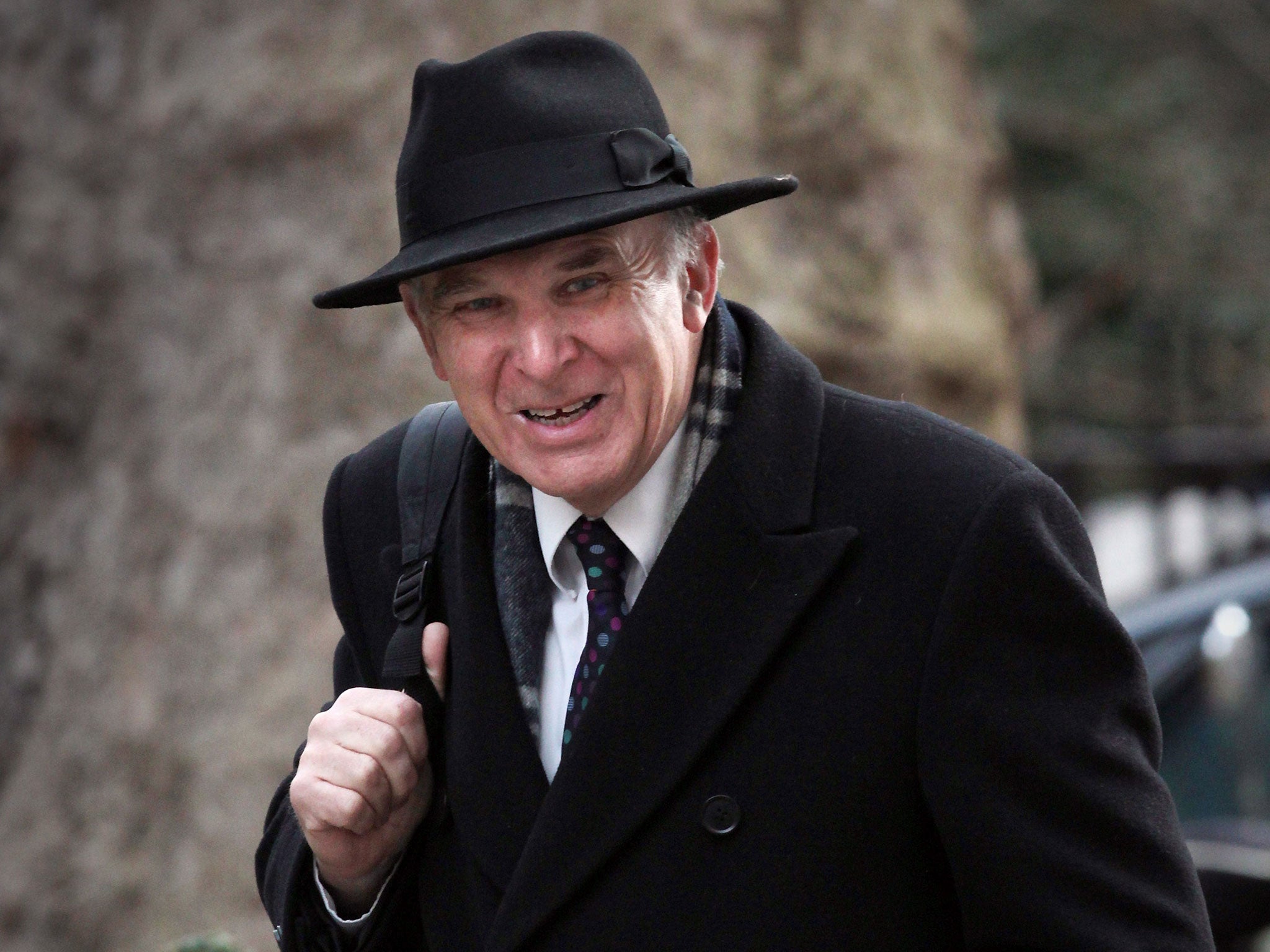British economy ‘will turn nasty next year’, says former Business Secretary Sir Vince Cable
‘People think no there's no problem with the economy, but they’re paying more for their food and their petrol and that’s going to hit them next year,’ he says

Your support helps us to tell the story
From reproductive rights to climate change to Big Tech, The Independent is on the ground when the story is developing. Whether it's investigating the financials of Elon Musk's pro-Trump PAC or producing our latest documentary, 'The A Word', which shines a light on the American women fighting for reproductive rights, we know how important it is to parse out the facts from the messaging.
At such a critical moment in US history, we need reporters on the ground. Your donation allows us to keep sending journalists to speak to both sides of the story.
The Independent is trusted by Americans across the entire political spectrum. And unlike many other quality news outlets, we choose not to lock Americans out of our reporting and analysis with paywalls. We believe quality journalism should be available to everyone, paid for by those who can afford it.
Your support makes all the difference.The British economy “will turn nasty” and could fall into recession as a result of Brexit, former Business Secretary Sir Vince Cable has said.
Recent economic growth and reassurances over sterling value may have led Britain into a false sense of calm, but living standards are being cut and longer-term problems are imminent, he warned.
“The two ways that economics are going to turn nasty are because devaluation – which may well grow - cuts peoples incomes,” he told The Independent. “They’re paying more for their food and their petrol, and that’s going to hit people next year particularly.
“The second is that businesses have just stopped investing, and that feeds through into potential recession and stores up long-term problems.
“Part of the problem is that George Osborne went round with this ‘Armageddon’ that the world was going to collapse and it hasn’t. So people think there’s no problem but there is.”
Speaking ahead of his return to the further education sector, the former Business, Innovation and Skills Secretary called for a review of government spending in education in particular.
Working with the National Union of Students, he will lead a new research project, Students Shaping Further Education, into how major reforms to the sector will affect current and future students across the UK.
The review will consider all aspects of the industry, including funding cuts to apprenticeships – which he says could ultimately affect productivity and add a further blow the economy.
“One of the problems with Brexit is that it’s sucking the energy out of the Government,” he said. “The really big thing about the UK is productivity if we take our eyes off that that’s bad.”
“It is a little bit like the Peanuts cartoon, where he walks off the cliff but is still peddling furiously, and hasn’t actually dropped. The economy is a little bit like that at the moment.”
“The economy looks alright in sterling terms but if you translate it into dollar terms, it is a lot smaller than it was and people are not aware of that, and people are going to feel it in the next few years.”
In the years before the global economic crisis, Sir Vince warned openly of the dangerous market banks were creating with easy lending and challenged the then-Chancellor, Gordon Brown, on his policies.
In November 2003, he said: “Is not the brutal truth that the growth of the British economy is sustained by consumer spending pinned against record levels of personal debt, which is secured, if at all, against house prices that the Bank of England describes as well above equilibrium level?”
Experts this week warned that sterling is likely to plunge to a new record low once procedures to leave the EU begin.
Sterling has already dropped by nearly 20 per cent against the dollar since the Brexit vote, becoming the world’s worst-performing currency in October.
Join our commenting forum
Join thought-provoking conversations, follow other Independent readers and see their replies
Comments